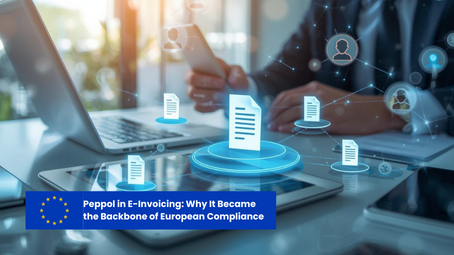Serbia’s 2026 e-Delivery Mandate for Excise Goods: What Businesses Must Know
- Melasoft

- Jun 25, 2025
- 3 min read

From January 1, 2026, Serbia will require all B2B transactions involving excise goods to be reported through a centralized e-Delivery system. Learn what this means for manufacturers, importers, and distributors.
Introduction: A Major Step Toward Digitalization in Serbia
In line with global trends toward digital compliance and transparent supply chains, Serbia is implementing a major regulatory change. Starting January 1, 2026, e-Delivery will become mandatory for all B2B transactions involving excise goods.
This reform aims to eliminate manual paperwork, reduce fraud, and improve regulatory oversight. For businesses trading in excise goods, early preparation is not just recommended, it’s essential.
What Are Excise Goods Under Serbian Law?

According to the Serbian Ministry of Finance, the following product groups are classified as excise goods and will be subject to mandatory digital delivery reporting:
Petroleum products and biofuels
Tobacco products, including heated tobacco and nicotine sachets
Herbal smoking products and hookah products (flavors)
Alcoholic beverages and coffee
Liquids for e-cigarettes
Electricity and natural gas for final consumption
If your business manufactures, imports, distributes, or transports any of the above goods in a B2B capacity, your delivery processes must comply with the new e-Delivery requirements.
The e-Delivery system is a centralized government platform designed to digitally register and monitor the movement of excise goods in real time. It replaces paper-based delivery notes and ensures that each shipment is digitally recorded and traceable.
Key features include:
Real-time delivery reporting to tax authorities
Unique digital delivery IDs for traceability
Automated data validation for consistency
Integration-ready APIs for ERP and logistics systems
Who Is Affected?
This mandate targets all business-to-business (B2B) stakeholders in Serbia dealing with excise goods. Specifically:
Manufacturers transporting goods to warehouses or retailers
Importers bringing goods into Serbia
Distributors moving goods between entities within Serbia
Even foreign companies with supply operations in Serbia may be affected, depending on their local logistics arrangements.
What Are the Risks of Non-Compliance?
Failure to comply with the e-Delivery requirement can result in:
Fines and legal penalties under Serbian excise laws
Delayed shipments due to lack of approval
Audit risks and potential tax complications
Loss of trade licenses in severe cases
Compliance is not optional, the law mandates participation.
How to Prepare Your Business
To ensure your business is ready by the 2026 deadline, consider the following steps:
Audit your product lines to identify excise goods.
Review your B2B delivery workflows and identify manual/paper steps.
Plan ERP integration with Serbia’s e-Delivery system (API-based connection).
Train your logistics and compliance teams on the upcoming changes.
Choose a technology partner with experience in e-Delivery and digital compliance.
How MELASOFT Supports Serbian e-Delivery Integration
At MELASOFT, we provide end-to-end integration solutions tailored to your ERP and logistics systems. Our platform ensures:
Compliance with Serbian regulations from day one
Seamless API integration with minimal disruption
Real-time monitoring and alerts
Support for SAP and non-SAP systems
Localized knowledge and regulatory expertise
Our solutions are designed for high-volume traders and SME distributors alike.
Final Thoughts
The shift to e-Delivery in Serbia represents a crucial moment for excise goods traders. Businesses that act early can turn this regulatory change into a competitive advantage by improving speed, transparency, and compliance across their supply chain.
Don’t wait until the deadline approaches. Contact MELASOFT today to explore how we can help you implement a fully compliant e-Delivery system, customized to your business needs.





Comments